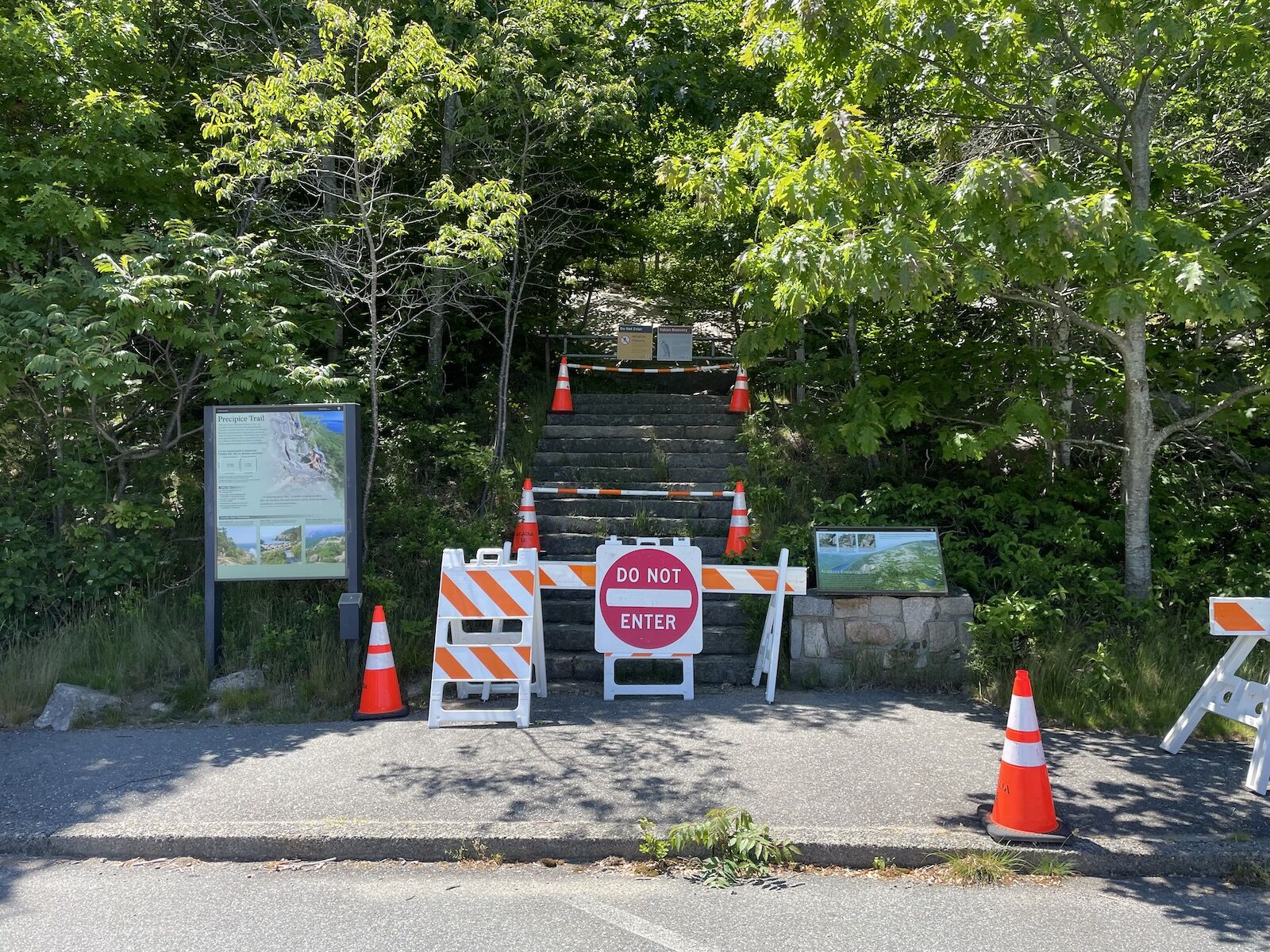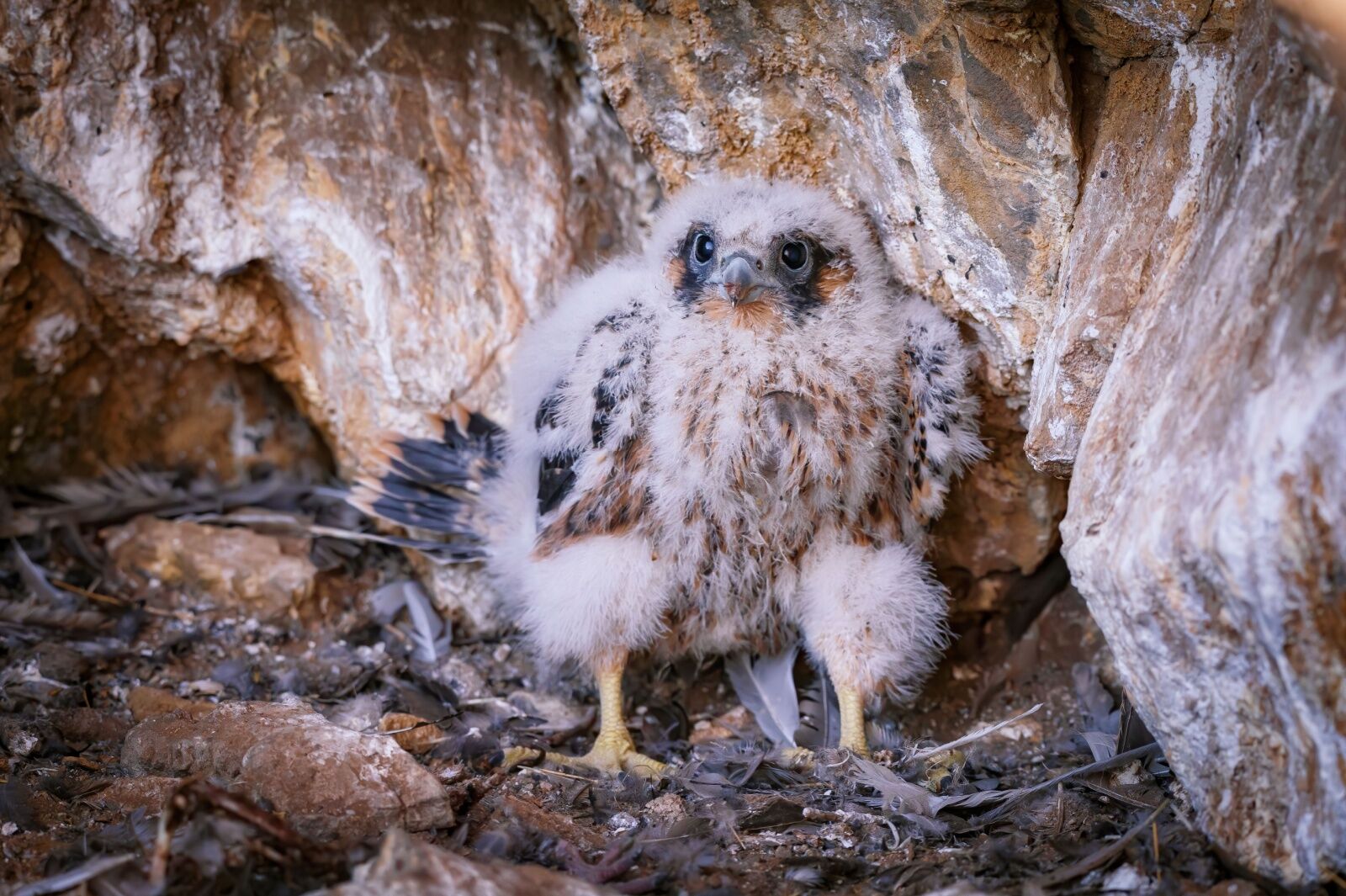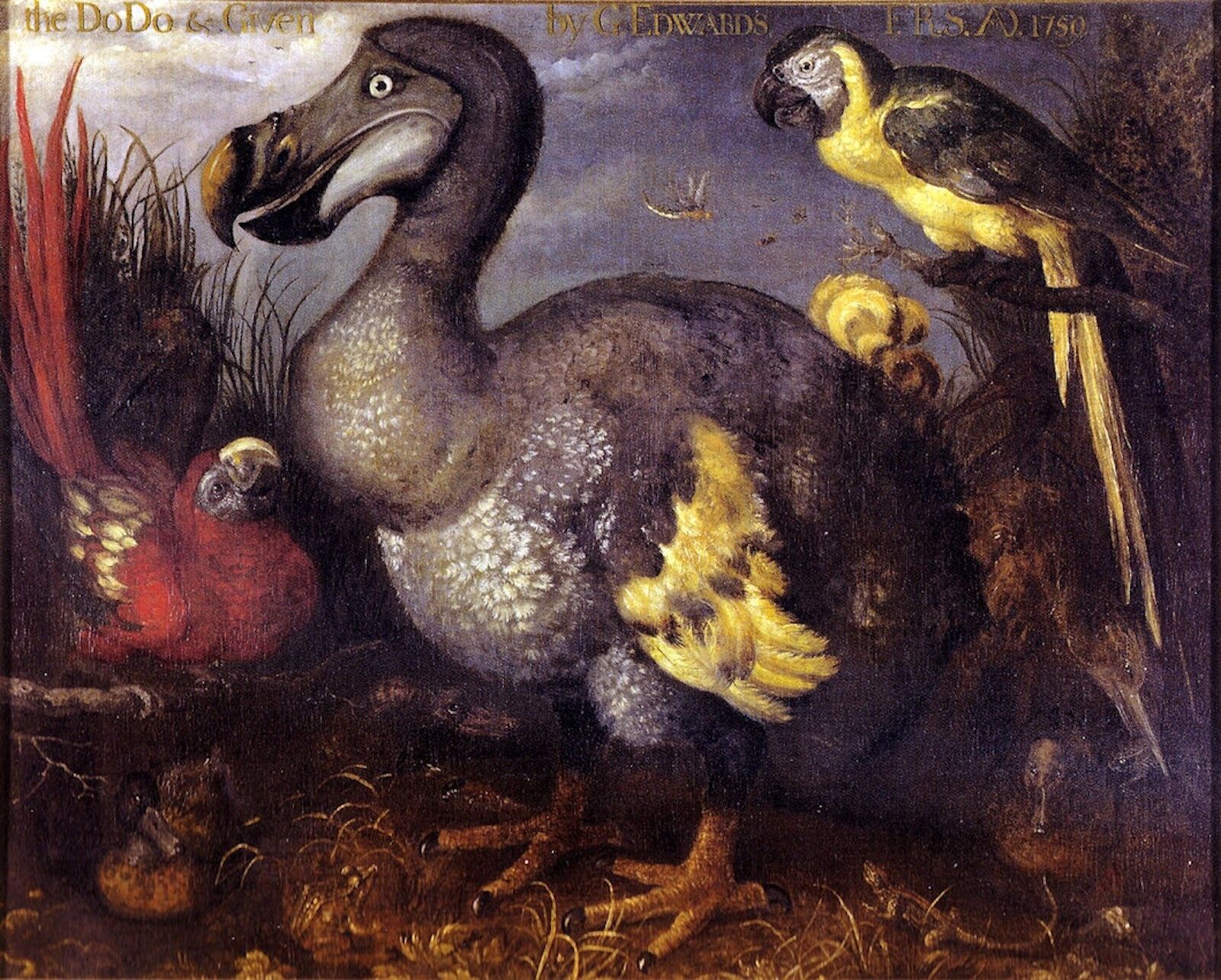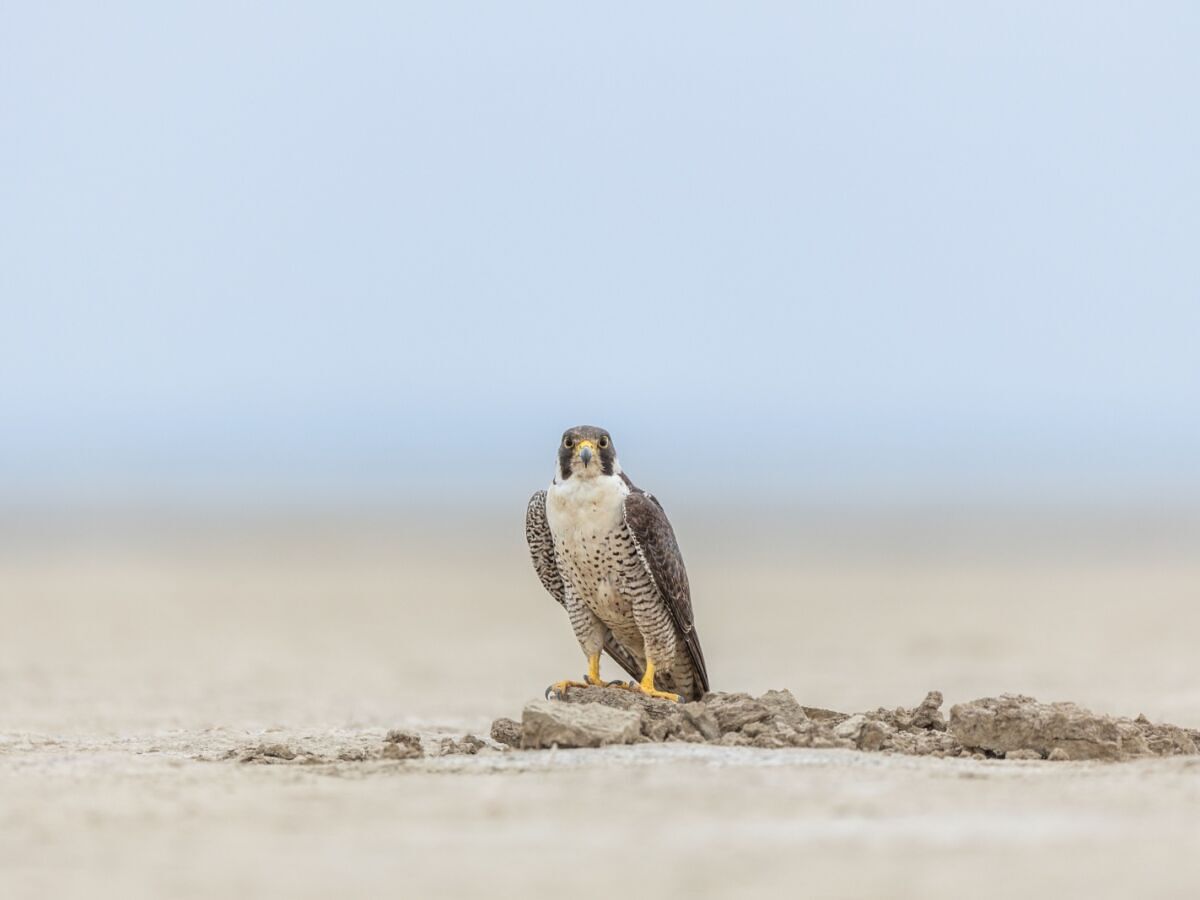On August 2, 2024, Acadia National Park in Maine issued a press release requesting assistance in identifying three hikers who committed serious violations in the park. They were photographed hiking along the park’s Precipice Trail, which leads to nesting sites for peregrine falcons, a species protected throughout the United States. About a week later, the suspects were identified, and now Maine residents Levi Brown, Cooper Boucher, and Jillian McLellan face charges of “federal violations of the Superintendent’s Closure Order,” which carry a penalty of up to six months in prison and/or a fine of up to $5,000.


The entrance to the Precipice Trail is clearly marked as closed. Photo: NPS/Acadia National Park/Public Domain
The Precipice Trail is closed for several months each year to protect falcons, one of the national park’s most iconic wildlife species. The closure is clearly marked at the trailhead, on park maps, in park literature, on the park website and on social media channels. Peregrine falcons, the press release states, “are particularly vulnerable to human activities, which can disturb the adults and make them less attentive to the eggs or chicks. Human activities near a nesting site can cause the adults to abandon the nest temporarily or permanently, leaving the chicks vulnerable to hypothermia, starvation and predation.”
By getting too close to the hawks, the three hikers could have caused the deaths of several hawk chicks. (So far, the park has not released any details about the allegations, including whether or not birds were affected.) Had the hikers encountered a crisis requiring search and rescue assistance, a rescue would have caused even greater disruption to the nests, potentially leading not only to the chicks being abandoned but also to long-term behavioral changes in the hawks if they chose not to return the following year.


A newly hatched peregrine falcon chick. After successful federal protection programs, they were removed from the endangered species list in 1999. Photo: Falcon1985/Shutterstock
If peregrine falcons were still on the endangered species list, the hikers could have been charged with violating the Endangered Species Act of 1973, which carries a one-year prison sentence and a $50,000 fine. They could also be charged with trespassing in a national park, a crime that carries an additional penalty of up to six months in prison and/or $500 fines. In some particularly sensitive areas, additional trespassing offenses can result in fines of up to $5,000. Actor Pierce Brosnan was recently charged with such a crime and ultimately fined just over $1,500.
A jail sentence and/or $5,000 may seem like a harsh punishment for trespassing on a hiking trail, but the National Park Service is likely considering the damage the trio may have caused, which could have been catastrophic both for the peregrine falcons as a species and for the ecosystem surrounding Acadia.
Human existence is causing what many scientists consider the sixth extinction event, called the Anthropocene (which means “human-related”). An “extinction event” is a period of time during which at least 75 percent of the planet’s species have become extinct. Five extinction events have been documented in Earth’s history, but the current possible one is the only one caused by another species (humans). In 2018, a group of scientists published the results of their peer-reviewed study in the Journal of the US National Academy of Sciences, predicting that it would take evolution more than 50,000 years to replace the number of mammal species that humans will wipe out in the next 50 years.


A painting of the dodo bird by Dutch painter Roelandt Savery, circa late 17th century. The dodo is one of the most famous species proven to have become extinct due to human activities. Photo: Roelandt Savery/Public Domain
If we are in the midst of a human-caused extinction, we should probably be particularly concerned with protecting the species that are still around. People who break laws protecting animals will put already threatened species at even greater risk, which will ultimately lead to further extinctions and environmental damage of unknown proportions.
While the trio is unlikely to receive a large sentence—in 2014, three men were only fined $2,605 each for killing and beheading several bison in Yellowstone National Park—land managers have occasionally succeeded in holding perpetrators of crimes against wildlife in national parks accountable. In July 2024, two people in Hawaii were fined a total of $20,000 after their loose dog attacked and killed an endangered monk seal pup. In 2021, a woman was sentenced to a short prison term in Yellowstone for getting too close to a mother grizzly bear and her cubs, and in early 2024, two men were fined a total of $20,000 for killing a moose in Alaska’s Denali National Park. ![]()
![]()

